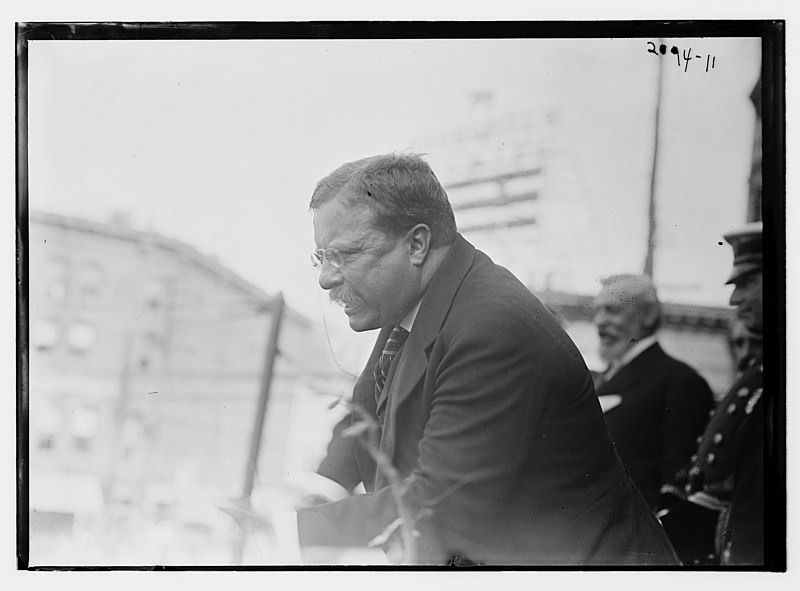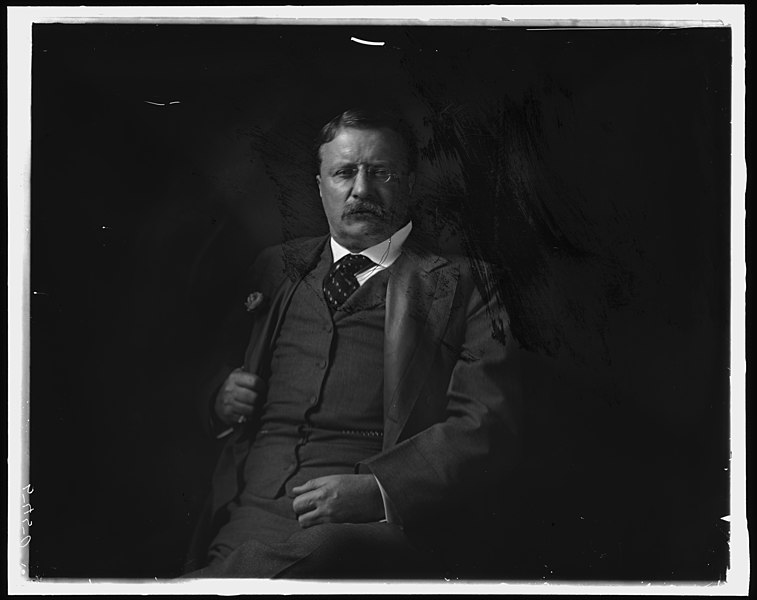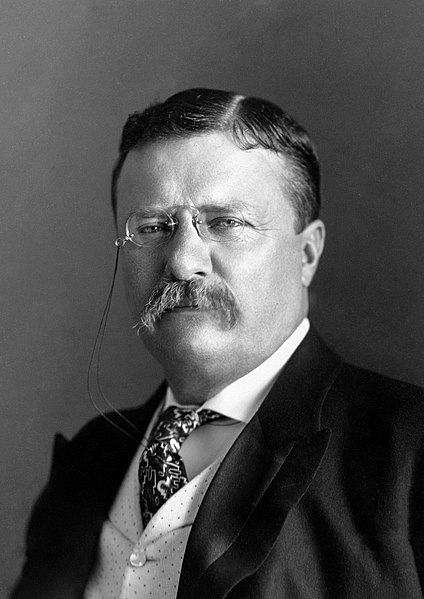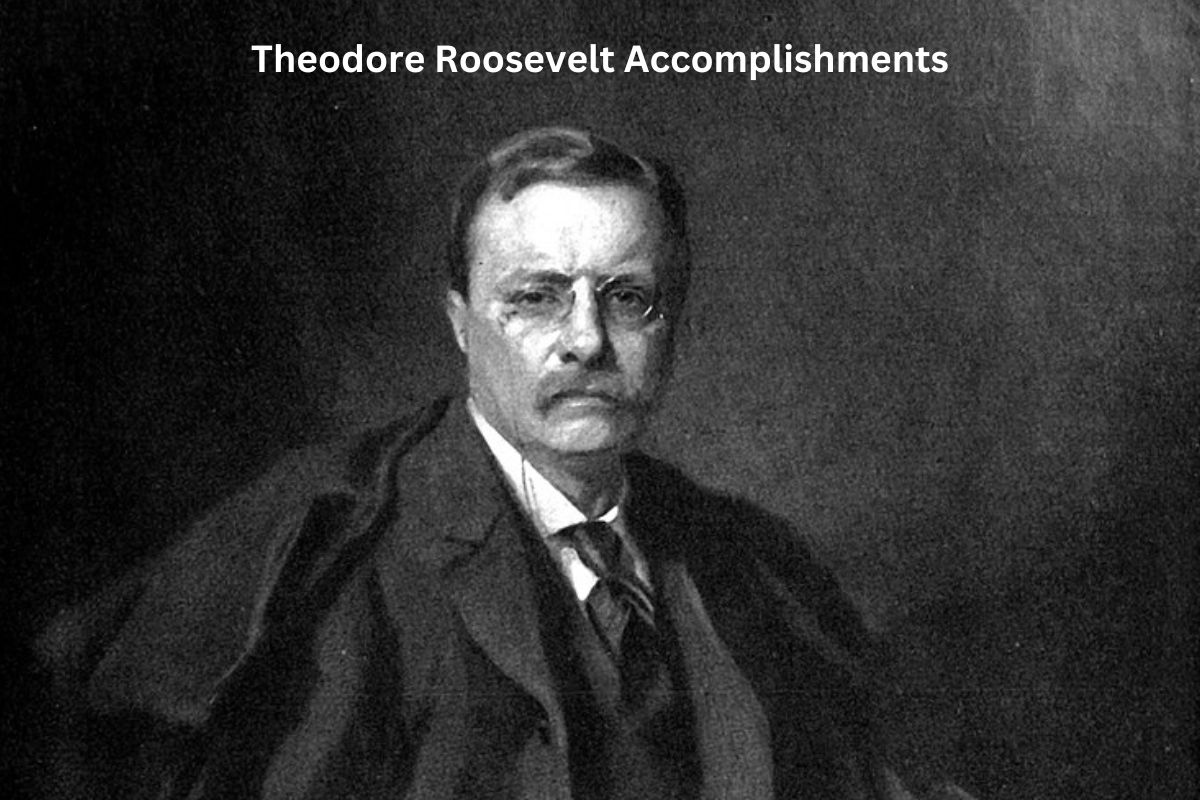Theodore Roosevelt, the 26th President of the United States (1901-1909), was a dynamic and influential leader known for his numerous accomplishments and achievements.
His presidency marked an era of progressive reforms, vigorous diplomacy, and significant contributions to American conservation and infrastructure.
In this overview, we will delve into some of the key accomplishments and highlights of his remarkable political career and presidency.
Accomplishments of Theodore Roosevelt
1. Trust-Busting
Theodore Roosevelt was known for his commitment to enforcing antitrust laws and breaking up large monopolistic trusts.
During his presidency, he initiated several significant antitrust actions, including the famous lawsuit against J.P. Morgan’s Northern Securities Company, which controlled much of the nation’s railroads.
Also Read: Facts About Theodore Roosevelt
This marked the beginning of his “trust-busting” reputation. His actions were aimed at promoting fair competition and preventing monopolies from stifling economic growth and harming consumers.

2. Conservation Efforts
Roosevelt’s passion for conservation led to a remarkable legacy of protecting natural resources. He expanded the national park system by creating five national parks, including Crater Lake in Oregon, and established 150 national forests, 51 federal bird reserves, and 18 national monuments.
He signed into law the Antiquities Act, which allowed presidents to designate public lands as national monuments, protecting them from development. His conservation efforts helped conserve and safeguard millions of acres of wilderness for future generations.
3. Panama Canal
One of Roosevelt’s most ambitious achievements was the facilitation of the construction of the Panama Canal. His administration took over the project after acquiring the rights to build the canal in the Canal Zone from the French company that had previously attempted the construction.
Also Read: Timeline of Theodore Roosevelt
Roosevelt’s leadership and determination were instrumental in overcoming numerous challenges, including engineering obstacles and tropical diseases.
The completion of the Panama Canal in 1914 revolutionized global trade by drastically reducing the time and distance required for ships to travel between the Atlantic and Pacific Oceans. This accomplishment had profound implications for the United States’ role in international commerce and military strategy.
4. Progressive Reforms
Roosevelt’s presidency marked a period of progressive reform in the United States. He advocated for a “Square Deal,” which aimed to balance the interests of labor, business, and consumers. Some key progressive reforms under his leadership included:
- Regulation of the food and drug industries: Roosevelt signed the Pure Food and Drug Act and the Meat Inspection Act into law, ensuring safer food and medicine for consumers.
- Labor reforms: He worked to mediate labor disputes and advocated for workers’ rights, resulting in better working conditions and fair labor practices.
- Business regulation: Roosevelt promoted regulations to curb corporate abuses and protect consumers. His administration pursued antitrust cases to break up monopolies and promote fair competition.

5. Treaty of Portsmouth (Nobel Peace Prize)
Theodore Roosevelt played a pivotal role in mediating the Treaty of Portsmouth in 1905, ending the Russo-Japanese War. His successful negotiation efforts earned him the Nobel Peace Prize, making him the first American to receive this prestigious award.
The treaty resulted in the establishment of peace in the Far East and showcased Roosevelt’s diplomatic skills and commitment to international diplomacy.
6. Expansion of the Navy
Roosevelt believed in the importance of a strong U.S. Navy and took significant steps to modernize and expand it during his presidency. His efforts included the construction of the Great White Fleet, a fleet of modern battleships that circumnavigated the globe from 1907 to 1909.
The Great White Fleet demonstrated America’s naval prowess and served as a symbol of U.S. naval strength on the world stage. Roosevelt’s commitment to a powerful navy played a role in strengthening American influence and interests in global affairs during his time in office.
7. Diplomacy in Latin America
Theodore Roosevelt’s foreign policy in Latin America was characterized by the Roosevelt Corollary to the Monroe Doctrine. This policy asserted the United States’ right to intervene in the affairs of Latin American countries to maintain stability and protect American interests.
Roosevelt believed that American intervention would prevent European powers from intervening in the region. Notable instances of this policy in action include the U.S. intervention in the Dominican Republic and Cuba to manage their financial affairs and stabilize their governments.

8. Consumer Protection
Under Roosevelt’s leadership, significant steps were taken to protect consumers from unsafe products and fraudulent business practices. Two key pieces of legislation were passed:
- The Pure Food and Drug Act (1906): This law aimed to ensure the safety and purity of food and drugs by requiring accurate labeling and regulating the sale of adulterated products.
- The Meat Inspection Act (1906): This act mandated federal inspection of meat processing plants and established sanitary standards to ensure the safety of meat products.
9. Mediating the Coal Strike
In 1902, Roosevelt intervened in the anthracite coal strike, which threatened to disrupt the nation’s energy supply during the approaching winter. He took a proactive role as a mediator, bringing both labor representatives and mine owners to the negotiating table.
The outcome was the creation of a commission to address the workers’ demands, leading to improved working conditions and wage increases for coal miners. Roosevelt’s intervention demonstrated his commitment to conflict resolution and preventing economic crises.
10. Strengthening the Presidency
Theodore Roosevelt expanded the power and influence of the presidency during his tenure in office. He believed in using the “bully pulpit” – the president’s platform to influence public opinion – to rally support for his policies.
Roosevelt’s strong and assertive leadership style set a precedent for future presidents, shaping the modern presidency. His belief in executive authority and his willingness to take decisive action in both domestic and foreign affairs elevated the role of the president as a central figure in American politics and policy-making.
